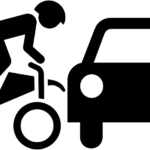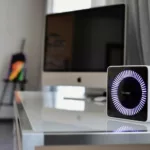It’s becoming more and more difficult to stay organized in today’s busy workplace. If you are in business, like an entrepreneur, staying organized can be a bit of a challenge. The best workers are the ones that are most productive. Staying organized is an important aspect of being productive overall.
Veteran business people typically credit their success to their ability or willingness to stay organized. Jason A. Sugarman, a well-known investor in sports teams and restaurants, credits his success to his ability to keep his schedule in check. If you have trouble staying organized, here are several tips from pros for fixing that situation:
Make To-Do Lists
Richard Branson has publicly attributed his success to his to-do lists in one way or another. He has been making lists of things to do since he was just a wee owner of a small recording studio. Branson’s approach, however, is unique. He would include in his lists things that need to get done immediately, such as buying inventory. But he doesn’t stop there. He would also include his lofty ambitions as a task in a to-do list. It made his ideas and ambitions transform into workable concepts. It’s definitely something all entrepreneurs can try.
Hire a Personal Assistant if You Can
Mr. Sugarman says those businesspeople, like managers and executives, who can hire an assistant, should do so. It’s particularly important if schedules can get varied and very complicated. This may not be an option available to all, however. Personal assistants can help ensure that the workday is perfectly organized. If you have trouble organizing things on your own, it will be worthwhile to pay for an assistant.
Use Digital Tools
Don’t ever hesitate to use digital tools, like apps and devices that help people stay organized. Because of smartphones and tablets, most of these productivity apps are available from any device, any time. Apps like Asana, Evernote, Skype, and many more are designed to make the workday less confusing. Some help facilitate communication, keep track of tasks, or manage teams from afar. Find out which apps may be most useful for your work, and then learn how to use them properly.
Separate Personal Tasks from Work Ones
Don’t mix up personal tasks, like picking up groceries, with work related ones, like overseeing a meeting. Like with finances, keep the personal and the business separate. Otherwise, there’s a higher chance of bungling up what’s due. You can make lists for personal tasks as well, but keep them separate if you can to avoid conflict. Do not add personal tasks to a day full of business tasks.
Minimize Meetings, or Time Them
Keep your schedule free of meetings if you can help them. Rather, communicate with your team or subordinates via an app like Skype or email. Meetings can waste time like no other. You don’t need to go into a meeting if you can get the task done with a single email. So, arrange meetings only if doing so is absolutely necessary.
Don’t forget to plan breaks in your schedule either. If you work too long and too hard, you will eventually crash and burn.








